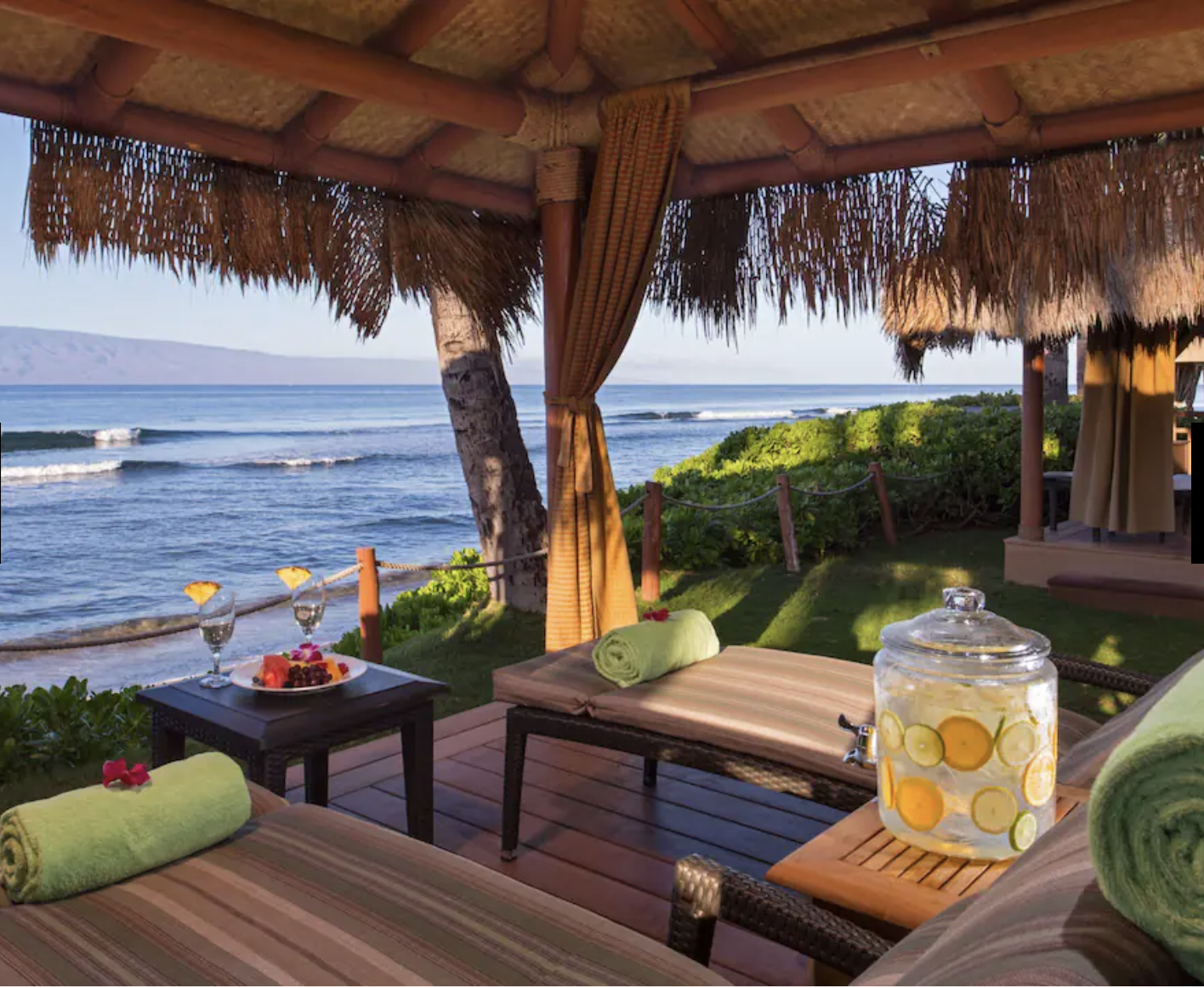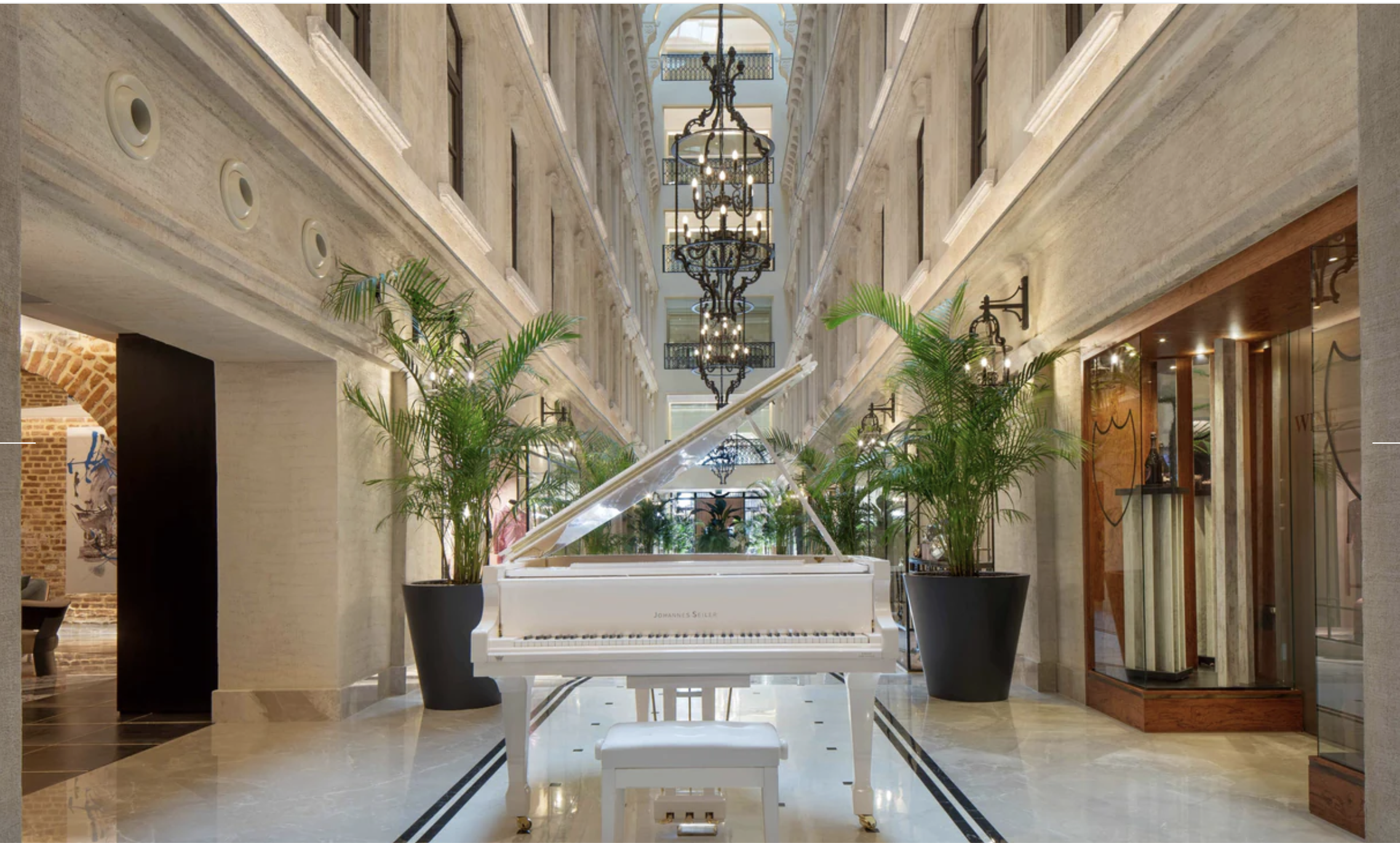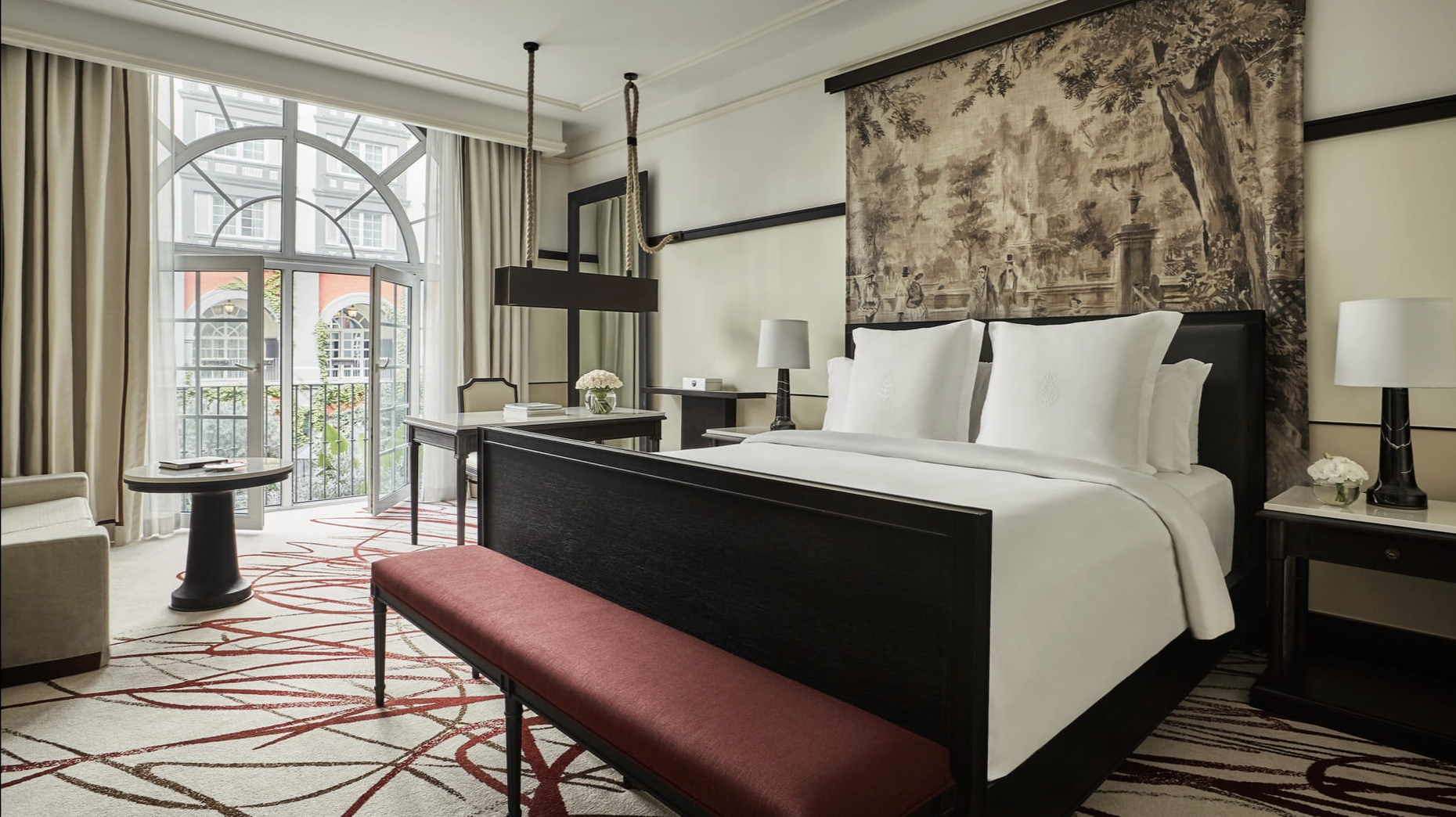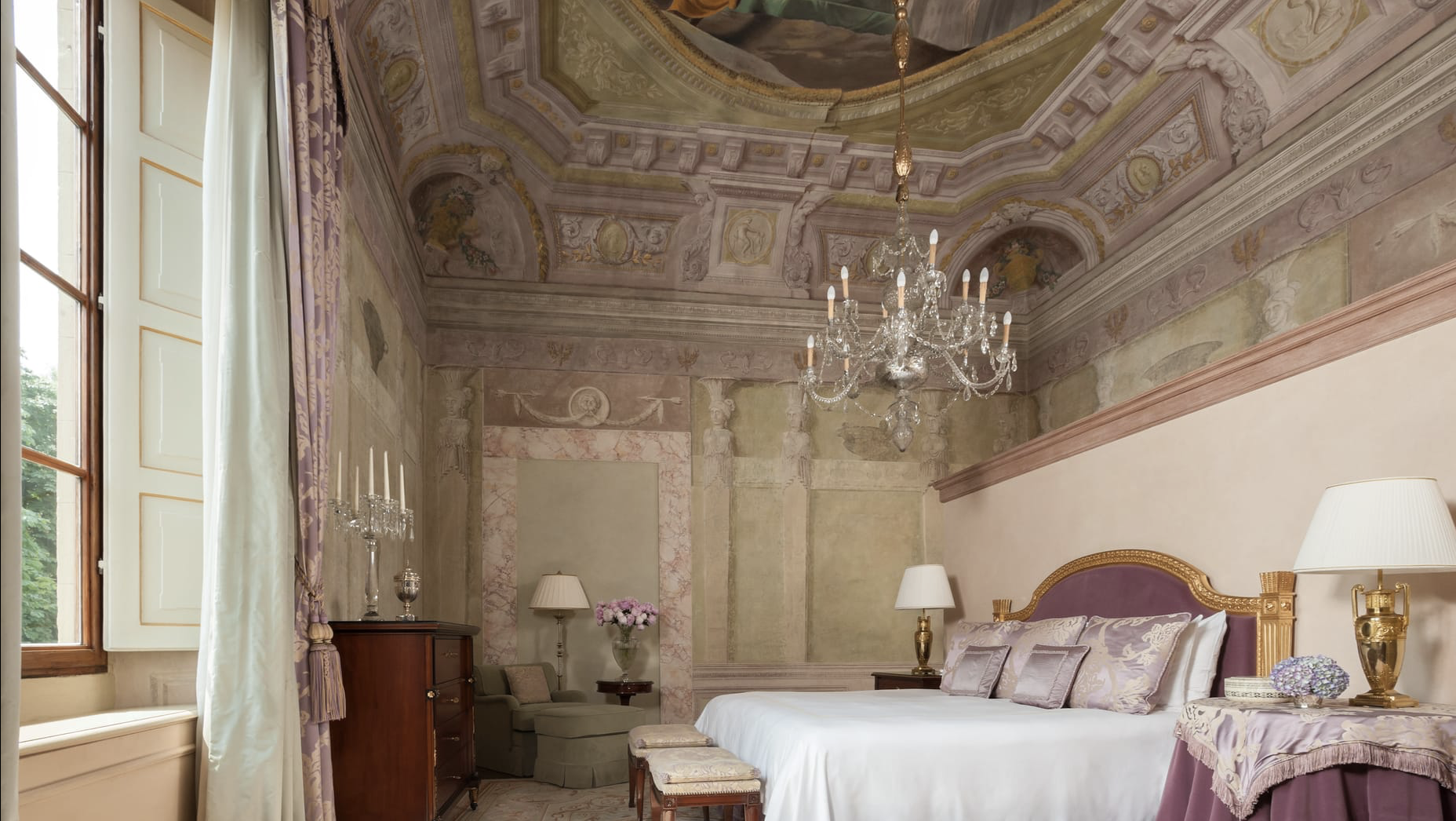Points Miles and Bling (blog) contains referral or affiliate links. The blog receives a small commission at no additional cost to you. Thank you for your continued support. Credit Card issuers are not responsible for maintaining or monitoring the accuracy of information on this website. For full details, current product information, and Terms and Conditions, click the link included.
Is hotel status becoming overrated?
Interested in getting a suite? Sorry, it’s not available because there are too many elites.
Want late check-out? Unfortunately, it’s not possible because the property is fully booked!
Then there is the constant stream of devaluations. While devaluations are part of the game, it’s hard to get excited about attaining hotel status when its value is taking a nosedive.
The issue is that many of these hotel chains are owned by investors rather than the hotel loyalty programs themselves. These investors or owners love being part of a big hotel chain. The marketing they get from being part of a brand name helps them attract more customers to their properties. But they really don’t love doling out benefits to hotel elites.
In recent years, these owners have pressured hotel loyalty programs to continually erode the benefits of their programs to cut costs. This makes it harder for elite members to extract value out of these programs as points redemptions keep soaring.

Hyatt Regency Maui Resort and Spa
Bonvoyed!
For example, Marriott Bonvoy, known as the industry leader in devaluations, has implemented a countless number of devaluations in recent years. I’m not going to cover all the recent devals they’ve introduced because the list will be too long.
The most notable one being their recent elimination of their award chart by moving to dynamic pricing. Just before publication of my post, news was making rounds about award redemption going up by at least 10% or more overnight for many of Marriott’s popular properties.
Unfortunately, getting Bonvoyed isn’t unique to Marriott Bonvoy. Hilton recently diluted its breakfast benefit, at least in the US. Elite members now get a food and beverage credit, rather than complimentary breakfast. Hilton awards are already dynamically priced.
Even the beloved World of Hyatt program is no stranger to devaluations. They took a page out of Marriot’s books and introduced “peak” and “off-peak’ pricing for their award chart. In their recently announced hotel category changes, more properties moved up then down a category.
Despite the devaluations and hotel benefits not always meeting expectations, many will still pursue hotel status. For some hotel programs, getting status is almost effortless and inexpensive.

JW Marriott – Istanbul
No Strings Attached
While there are shortcuts to earning or acquiring hotel status, not everyone will bother. Some prefer to be free agents. Others are fed up with hotel loyalty programs. Then there are Canadians. Getting hotel status in Canada can be a struggle, since hotel co-branded credit cards are rare species in this part of the world. Unless one dabbles in US credit cards.
Whatever the reason for not pursuing hotel status, there are alternatives. I will explore a few different options worth considering for your next hotel stay, along with the benefits and drawbacks of each option.

Four Seaons Mexico City
- Hotels.com Program
With Hotels.com, you can book hotels and other accommodation types (hostels, apartments, and bed & breakfasts). You have access to both independent hotels as well as chain hotels.
You earn a stamp for each hotel night. When you accumulate 10 stamps in a year, you get a free hotel night. The value of this free night is the average price you paid for the 10 nights of hotel stays.
Similar to how hotel programs sometimes run a double elite night promotion, with Hotels.com they occasionally run a promotion offering double stamps for each night you book. I took advantage of such a promo last year. I booked my hotel through Hotels.com for my stay in Ushuaia, Argentina and earned 10 stamps for a 5-night stay.
They even offer membership benefits, depending on how many nights you book in a year. It’s the same idea as hotel status that you earn for the number of hotel nights you stay at a hotel chain.
If you have 10 to 29 stamps a year, you earn Hotels.com Rewards Silver. This status comes with benefits such as free breakfast, free Wi-Fi, or other benefits like a spa voucher. If you have 30 or more stamps a year, you earn Hotels.com Rewards Gold. The benefits includes room upgrades, early check-in and late check-out.
Benefits
Hotels.com’s strengths are in its diversity and simplicity of its rewards program. You have diversity in terms of the accommodation type as well as the different hotel brands you can book. There are also different categories of hotels at different price points. You’re not chained to any particular brand.
Some travellers also value staying at independently owned hotels to experience a unique and local property instead of the usual hotel chain that you can find everywhere. In other cases, you might not have a choice but to stay at an independent hotel if you’re visiting a small city or town.
The other major benefit is their reward program’s simplicity. You don’t have to figure out the value of points, keep track of category changes or pay attention to any program devaluations. You simply book your hotel stay, and earn stamps. Once you reach 10 stamps, you redeem your free night. It can’t get simpler than that!
Drawbacks
While Hotels.com offers competitive pricing, sometimes it’s cheaper to book directly with a hotel chain if you’re using a corporate code. For non-chain hotels, even though properties tend to be competitively priced, sometimes they only offer non-refundable rates.
While the rewards program is simple, it’s fixed. You can’t get outsized value like you can when you redeem your points at a hotel chain to stay at an aspirational property.
If you use this program often and earn a membership tier such as Silver or Gold, the benefits don’t apply to all properties booked through Hotels.com. They are limited to ones that are marked as “VIP access.” Hence, even if you’re a frequent user of this program, you don’t always get to enjoy the benefits that come with the membership tier you earned.

Shangri-La Sydney
2. Credit Card Travel Portals
There are Canadian banks that have their own travel portal to book hotels or have a partnership with one of the Online Travel Agencies (OTA). One example is TD, which offers a TD First Class Travel Visa Infinite credit card. If you hold this card, you earn TD Rewards.
TD has a partnership with Expedia, called TD for Expedia, where you can redeem your points in this travel portal. They offer a $100 annual credit, if you book accommodations through the TD for Expedia that amounts to $500 or more using this TD credit card. You earn 8 TD Rewards points for every dollar spent when you book travel through TD for Expedia.
Another option is CIBC, which has a line-up of credit cards that earn their in-house reward currency called Aventura points. You can redeem your Aventura points for hotels through the CIBC Rewards portal.
You also earn 2 Aventura points for every dollar spent on travel booked via their travel portal if holding the CIBC Aventura Visa Infinite credit card or CIBC Aventura Gold Visa credit card. If you have the CIBC Aventura Visa Infinite Privilege credit card, the earning rate is 3 Aventura points per dollar spent using the travel portal, but it comes with a premium annual fee of $499.
Benefits
The benefits are similar to Hotels.com where you have the flexibility of booking different accommodation types. You also have access to different hotel brands.
What really stands out about this option is that you can redeem the points you earned from the welcome offer and spend on the credit card in these travel portals to offset the cost of your hotel stay. This is a great option in reducing your hotel expenses.
Drawbacks
While you can earn points from booking travel through these portals, they’re not competitive rates. This is especially the case for CIBC Aventura points. You also don’t get elite benefits like breakfast, unless it’s included as a standard benefit for the property you’re booking. This is really a no-frills option.

- Luxury Preferred Partner Booking Programs
For luxury travellers or those looking to splurge, there is a way to get many of the perks of having top-tier status minus the status. You have to go through a travel advisor that works with a luxury travel booking program. Examples of these luxury preferred partner booking programs include:
-
- Virtuoso
- Shangri-La Luxury Circle
- Hyatt Privé
- Marriott STARS
- Marriott Luminous
- Hilton Impresario
- IHG Luxury & Lifestyle
- Four Seasons Preferred Partner
- Mandarin Oriental Fan Club
The typical benefits you get from booking your hotel stay through one of these programs can include things like:
-
- Daily breakfast for two
- Room upgrade if available
- Early check-in (subject to availability)
- Late check-out (subject to availability)
- $100 property credit (to use for spa, dinning or other amenities)
If you’re staying with a particular hotel brand, you may get a better offer by booking through the brand’s luxury program. In the case of Hyatt, you would book via Hyatt Privé rather than Virtuoso, which deals with multiple hotel brands. The reason being is you will likely get better benefits.
For example, when you book via Hyatt Privé you would get a confirmed room upgrade within 24 hours of booking based on availability. Contrast that with Virtuoso where you won’t get an upgrade based on availability until check-in. You also have access to more Hyatt properties than Virtuoso.
Also, the perks may vary depending on which program you’re using. Sometimes there will be special offers. An example is an offer to book two nights, and get the third night for free. If the travel advisor you work with is partnered with several programs, they should be able to tell you which program has the best offer.
Benefits
The main benefit of using these preferred partner booking programs is that you get many perks that hotel status elites would get, with sometimes better benefits. For example, the property credit is typically not offered as a status benefit. Not to mention that you get access to an assortment of luxury brands, rather than being limited to just one brand.
Additionally, even if you have status with various hotel loyalty programs, you may benefit from a preferred partner booking. This is because not all luxury brands have a hotel loyalty program.
You also can get a more personalized service thanks to the travel advisor that will help you if you have any special requests. This is especially important if you run into any issues, because they will help you get things sorted out.
If you do book through one of these programs for a brand that does have a hotel loyalty program, you can add your membership number to earn both elite nights and points. Even though its the travel advisor that does the booking on your behalf, the hotel bills you directly.
Drawbacks
You have to pay a flexible rate and sometimes only a non-refundable rate is available. You can’t use a corporate code or book a discounted rate. It may also be cheaper to have top-tier status with one or more of the large hotel chains to get some perks, with flexibility of also doing points bookings. However, you would be limited to just the hotel chains you have elite status with.
One thing you can do is to use the travel points earned via credit card to apply against your hotel expenses to get a statement credit to reduce your costs. This is what Sash did for his recent hotel luxury trip to Asia. He used his rich balance of Scene points earned from the American Express Scotia Gold to help offset the cost of his hotel stays booked through Virtuoso.
Finally, one other negative is that some travel advisors levy a service fee or have a minimum spend threshold to book you a property. You need to spend the time to find the right travel advisor. Some travel advisors have more or better partnerships than others, so it’s a good idea to get recommendations from others that have used a travel advisor.

Waldrof Astoria – Amsterdam
4. Amex Fine Hotels & Resorts (FHR) Booking
If you hold the American Express Platinum card or American Express Business Platinum card, you have access to the Amex Fine Hotels & Resorts booking program. With this program, you’re able to book many of the luxury brands and get similar perks to the ones you would get via the luxury preferred partner booking program.

In this case, you wouldn’t deal with a travel advisor and instead you would book directly online via the Amex Travel portal and select Fine Hotels and Resorts. You also have the option of doing the booking on the phone.
Benefits
The advantages of this program are similar to the ones to the preferred partner booking program. You get all kinds of perks without the need to have status. The other big advantage of FHR is you get the guaranteed 4PM late check-out. With the preferred partner booking programs, late check-out is usually not guaranteed.
Drawbacks
Some of the perks you get through booking with FHR aren’t as strong as booking through the preferred partner booking program. This is of course property dependent and also depends on which preferred partner booking platform you use.
One example of this is if you’re staying at a Four Seasons, and you book via FHR, the room upgrade is subject to availability. However, if you book through Four Seasons Preferred Partner, you have an option to book a guaranteed room upgrade. In this case, you would be at the front of the line compared to someone that booked via Amex FHR who would get lower priority for a room or a suite upgrade.

Mandarin Oriental London
Take Away
As hotel chains increasingly diminish the value of their loyalty programs, it’s comforting to at least have alternatives.
For those seeking luxury hotel stays with many perks, they can try out a preferred partner booking program or Amex FHR. These programs replicate many of the benefits that come with top-tier hotel status.
For travellers that aren’t interested in all the bells and whistles that come with status, booking through a credit card’s travel portal or through Hotels.com are great options.
Have you tried any of these options for your hotel stays?

3 comments
I take it this is a Hotels.com centric post? Hotels.com is great up front as a booking portal to a point, then there is the last minute change lost reservations at the hotel. Have an issue the hotel always tells you to call Hotel.com. At my company we tried this portal once or twice with mixed results never to be used again. At best it’s a “price check” when making a hotel reservations.
Hyatt is the last good program. Been able to confirm suites on multiple stays as a globalist. Diamond with Hilton is useless in the USA as everyone is diamond and bonvoy is bonvoy.
The ability to confirm upgrades is definitely beneficial and one of the best perks of Globalists. I find in North America in general, the elite treatment pales in comparison to other parts of the world.